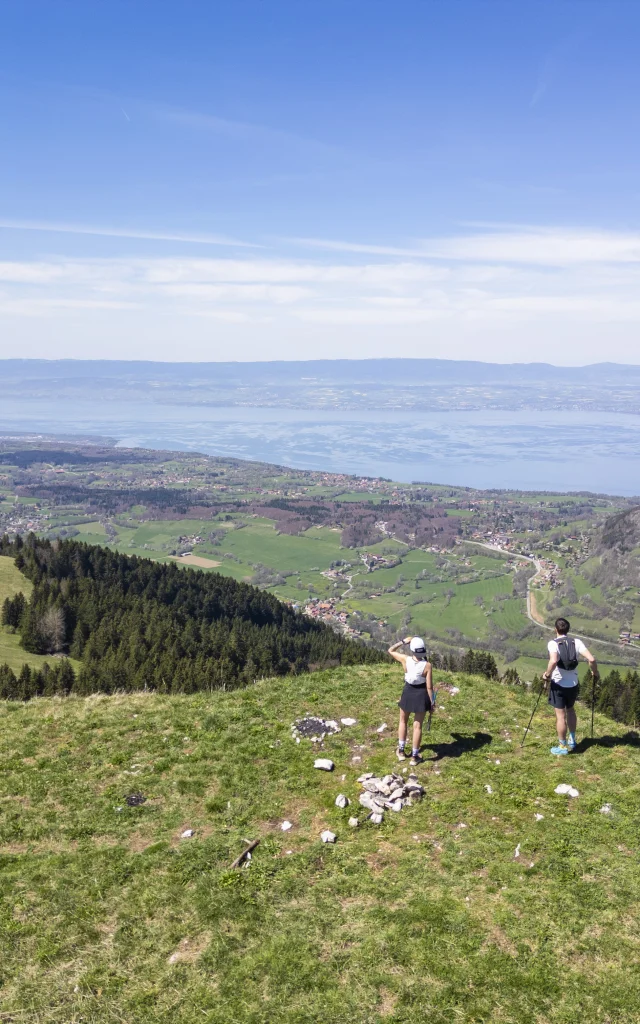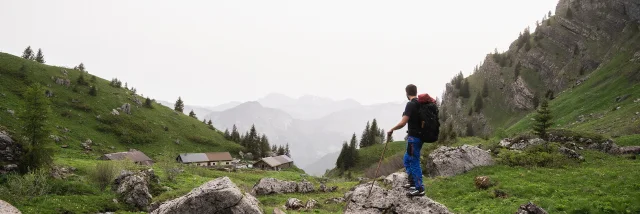- 1. The safety
The mountains are wild places and certain precautions must be taken:
- check the weather forecast before setting off,
- study your itinerary,
- find out about protected areas and regulations,
- bring warm clothing,
- always carry water and snacks.
- 2. Discretion
Let’s remain discreet so as not to disturb wild animals, while keeping our distance to observe them, without following or feeding them.
Our dog friends are also perceived as predators by wildlife or a source of stress for herds, so it’s vital to keep your dog on a lead.
- 3. The waste
What about our waste? The best waste is the waste we don’t produce, so let’s choose our products carefully and, above all, take our waste with us.
- 4. Preserve flora
Mountain flowers are superb but fragile, and are more beautiful in their natural environment than in a bouquet…
Some areas, such as Mont de Grange and the Cornettes de Bise, are subject to regulations prohibiting picking (APPB – Arrêté préfectoral de protection de biotope).
Fires are also a danger to nature.
- 5. Stay on the marked trails
Going off-trail weakens the vegetation, impacts the herds’ grazing resources and encourages erosion.
Let’s also avoid shortcuts, as mountain space is often shared between private owners, and the herds will thank us for not stepping on their plate.
- 6. Avoid swimming
High-altitude lakes are fragile ecosystems that are heavily impacted by human activity. In order to preserve them, we strongly advise against swimming in them (the same goes for our dogs and our dishes…).
- 7. Nature to share
Alpine pastures are often private land and workplaces, so remember to close fences behind you and stay on the paths.
Guard dogs are an integral part of the mountain landscape:
- signal your presence,
- avoid the herd if possible,
- stop and speak calmly
- 8. Transportation
Let’s use public transport and car-sharing to get to the starting points of our hikes.
Travel is the main source of CO2 emissions.
- 9. Bivouacs
In France, bivouacs are tolerated but have a significant impact on our natural spaces. To minimize the impact :
- Find out about current regulations and, if possible, ask the owner or operator for permission.
- Set up your tent at the end of the day and dismantle it in the early hours of the morning.
- Set up on short-cut grass to reduce impact on vegetation
- Avoid campfires
- Bring your own garbage and toilet paper
- Do not wash yourself or your dishes directly in a lake.
Follow Savoie Mont-Blanc’s advice: Le bivouac sans couac.
 Trail Mont Baron vue Drône April 2024
Trail Mont Baron vue Drône April 2024
